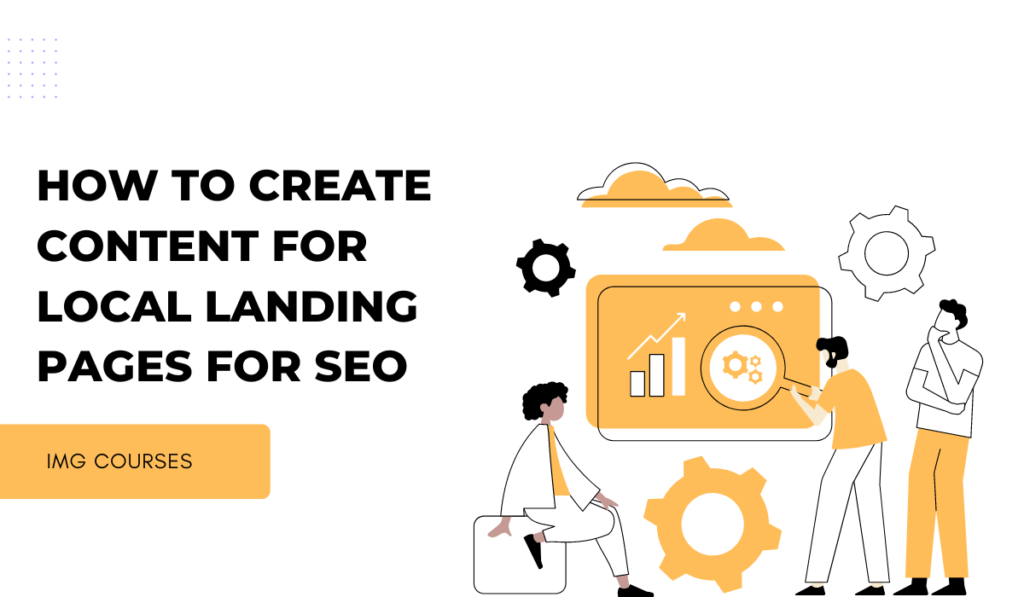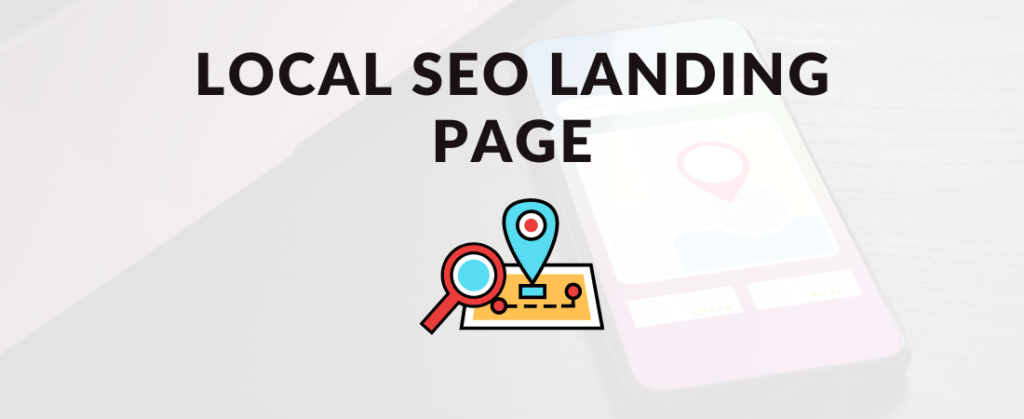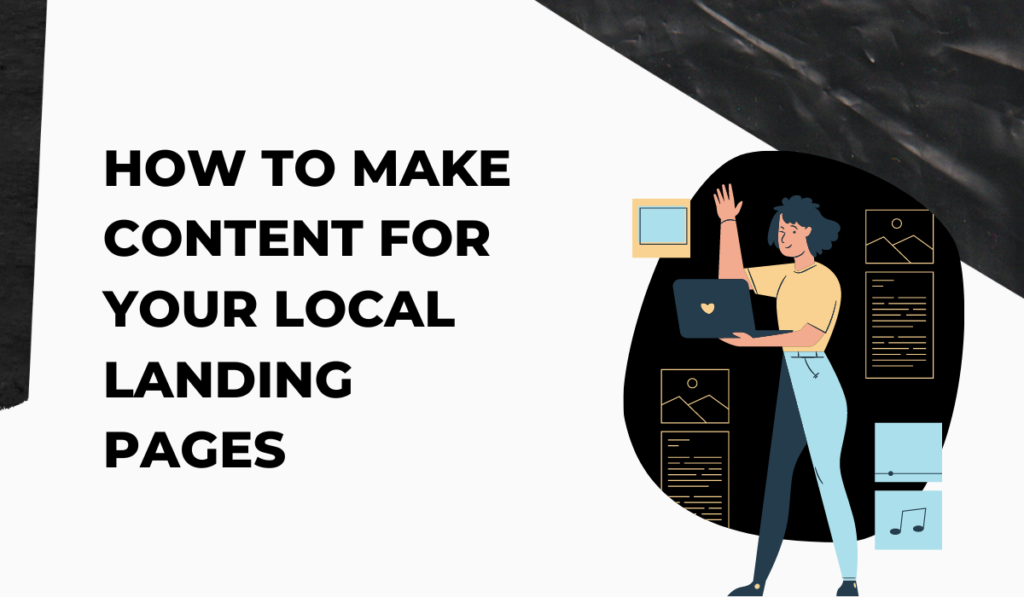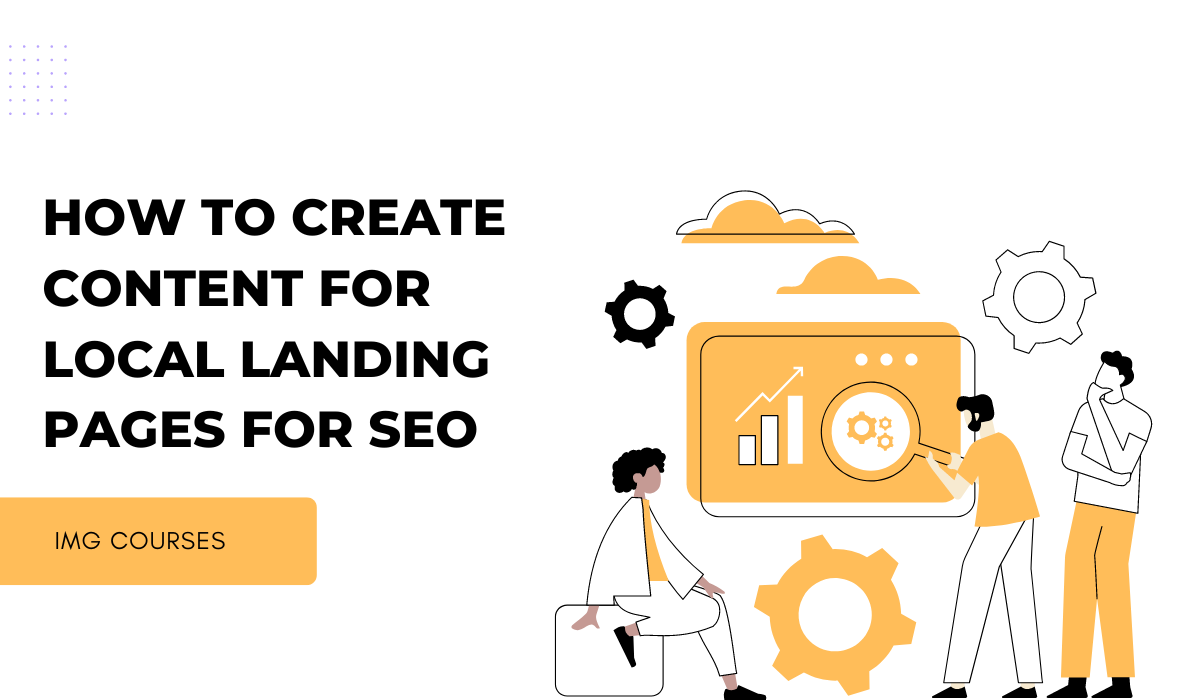
Harnessing the power of local landing pages is the key to unlocking digital marketing success in today’s SEO landscape. With Google leaning heavily towards local search results, a well-optimized local landing page could be your golden ticket to enhanced online visibility, drawing in a pool of local customers, and boosting conversion rates.
But what’s the formula to make an outstanding local landing page? This article serves as your comprehensive guide, whether you’re an experienced local SEO specialist or a business owner venturing into the realm of digital marketing. Let’s learn how to create content for local landing pages for SEO!

SEO Goals: Meta Descriptions, URL Slugs, and Headers
Mastering the Art of Meta Descriptions
Your meta description is like a movie trailer for your page, briefly summarizing its content beneath the URL in search engine results. Make it compelling, informative, and succinct, ideally around 155 characters.
- Prioritize Relevance: Blend primary and secondary local keywords seamlessly into your description. For instance, if you’re targeting coffee shops in Boston, your meta description could be: “Discover top-rated coffee shops in downtown Boston. Find your perfect brew today!”
- Incorporate a Call To Action (CTA): Encourage users to click through with powerful verbs like ‘Explore’, ‘Find’, ‘Grab’. An example could be: “Explore the best cafes in Boston and grab a cup of joy!”
- Localize: Highlight your location to attract local customers. For example, “Find the top-rated coffee shops in downtown Boston.”
Build an Optimized URL Slug
A URL slug is the specific address of a given page on your site. It should be clean, user-friendly, and ideally include your primary keyword.
- Simplicity is Key: Eliminate unnecessary words. For example, change /blog/the-top-cafes-in-boston to /blog/top-boston-cafes.
- Keyword Inclusion: Make sure your primary keyword is present in the slug for better SEO and user clarity.
- Use Hyphens: Use hyphens to separate words, improving readability.
Create Effective Headers and a Clear Page Structure
Headers (H1, H2, H3, etc.) act as roadmaps to your content, guiding readers and helping search engines to understand your page content.
- H1 Tag: This is the title of your page and should include your primary keyword, e.g., “Top Coffee Shops in Boston.”
- H2, H3 Tags: Use these for subheadings to divide content into easily digestible sections. For example, H2 could be “Why Boston is a Coffee Lover’s Paradise,” and H3 could be “Best Coffee Shops Near Boston Common.”
- Keyword Variation: Use related terms within your headers to avoid repetition and keep readers engaged. For example, “Popular Cafes in Boston” or “Where to Find Great Coffee in Boston.”
How to Make Content For Your Local Landing Pages

Inject Local Flavor into Your Content
For local SEO, localization is non-negotiable. Weave geo-specific keywords into your content, reference local landmarks or happenings, and provide location-specific insights. For instance, mention well-known Boston landmarks like Fenway Park or the Freedom Trail.
Understanding User Intent
Tailor your content to your users’ needs. Are they in search of information, looking to buy a product, or in need of a particular service? Customizing your content to meet these needs will heighten user experience and boost conversions. For example, if users are looking for the best places to have brunch, detail a few top spots and their unique offerings.
Upholding Quality and Relevance
High-quality, engaging content is always the winner. Use lists, infographics, and images to break up text and make your content visually appealing. For example, create an infographic showcasing a map of top coffee shops in Boston.
Mobile Optimization
Most searches happen on mobile, so it’s crucial that your local landing page is mobile-friendly. This means fast loading times, intuitive navigation, and a responsive page design.
Incorporate a Powerful CTA
Guide users towards a specific action with a strong CTA. Whether it’s making a purchase, subscribing to a newsletter, or reaching out to your business, make your CTA clear, compelling, and easy to find. For instance, “Visit us today for a 10% discount on your first coffee!”
Google Map and Google Business
Include a Google Map on your page to make it easier for local customers to find you. Also, set up a Google Business account to improve your local SEO.
City Pages
Creating specific landing pages for different cities can improve local visibility and help to draw in more customers from those areas. For example, have separate pages for “Best Coffee Shops in Boston” and “Top Cafes in Cambridge.”
Conclusion
Local landing pages have the potential to revolutionize your business if executed well. It’s a process that requires time, effort, and a deep understanding of your audience and local SEO. But with these tips in hand, you’re set to create local SEO landing pages that not only score high on SERPs but also attract, engage, and convert your local audience.
Remember, SEO is a journey, not a destination. So keep refining, keep learning, incorporate link building, and keep moving forward! Your local business will reap the rewards.
FAQ For Local Landing Pages For SEO
How do I create local SEO content?
To create local SEO content, incorporate geo-specific keywords into your content, mention local landmarks or events, and provide information relevant to your local audience.
How do I create content for a landing page?
Creating content for a landing page involves identifying user intent, providing clear, persuasive information that addresses this intent, and including a strong call-to-action (CTA).
How do I write an SEO-friendly landing page?
To write an SEO-friendly landing page, incorporate primary and secondary keywords into your meta descriptions, URL slugs, and headers, ensure your content is high-quality and relevant, and optimize your page for mobile use.
What are local SEO keywords?
Local SEO keywords are search terms that include specific geographic locations, used to attract users searching for products or services in those areas, like “surf gear in a coastal zone.”
What type of content is a landing page?
A landing page is a standalone web page with content designed to guide visitors toward a specific conversion goal, such as making a purchase, subscribing to a newsletter, or contacting a business.

